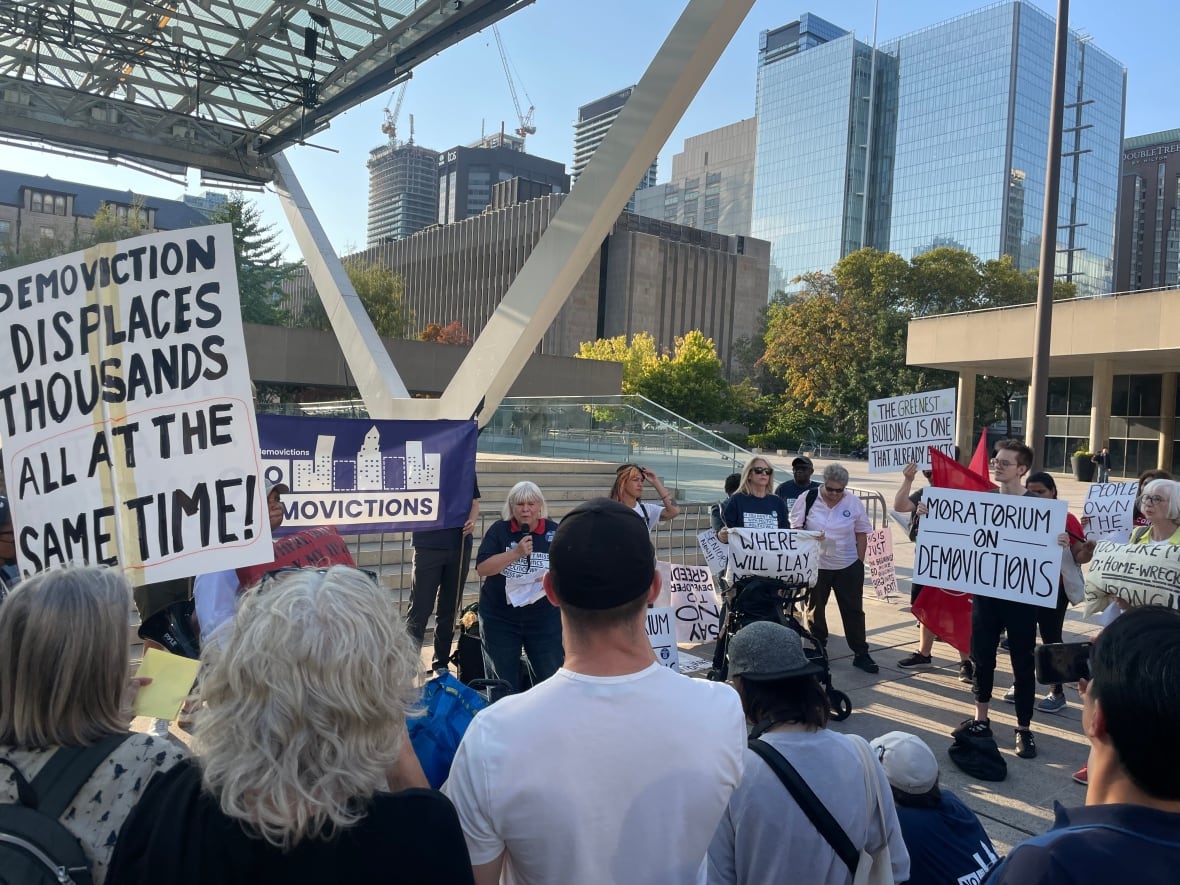Demovictions are on the rise in Toronto. Some fear they’ll make the rental market worse for everyone
As Toronto renters feel the squeeze of a competitive market with prices that won’t stop climbing, some in the city are sounding the alarm about a practice they say is displacing them while temporarily taking affordable units off the market: demovictions.
A demoviction, or demolition driven eviction, is when a landlord evicts tenants from a building so that it can be demolished and redeveloped into new apartments or condos.
Megan Kee, an organizer with the advocacy group No Demovictions facing demoviction herself from her rent-controlled midtown apartment, says taking prospective renters out of affordable units and adding them to Toronto’s market is not what the city needs.
“Demolishing this very limited part of the housing system is going to displace a huge number of renters who have nowhere else to go, especially because we have historically low rental vacancy rates,” she said. “Thousands of tenants displaced by demovictions will now be competing for housing in an already tight rental market, [which] will impact affordability for everybody.”
On Monday, No Demovictions held a protest downtown attended by about 100 people who called for demovictions to be stopped. Since 2017, there have been 81 apartment buildings approved for demolition and replacement in Toronto, according to data from the city’s website. Those buildings included 3,225 rental homes and 1,757 affordable units. During those five years, 2022 saw the most approvals with 23, after eight approvals in 2021 and 11 in 2020.

The city and province say displaced tenants have the right to return to their units at similar prices once redevelopment is complete, and renters are offered financial assistance to pay market rents in the meantime. But those living in buildings that are at risk are still worried about being priced out of their neighbourhoods and frustrated by the forced disruption in their lives.
“I’m finally at a place in my life where I’m ready to start a family and the fact that the uncertainty of where I’m going to live has put a hold on that is really discouraging and really disheartening,” Kee said.
What are tenants entitled to when they get demovicted?
Both the province and city have protections for tenants when they get demovicted.
According to provincial legislation, if a tenant is being evicted from a building with five or more units, the developer needs to give them three months’ rent or offer them another unit that the tenant is OK with.
The city says tenants need to be paid a rent gap payment that covers the difference between their previous rent and market rent while they’re displaced.
Initially, that might sound like an okay deal, said No Demovictions member Lindsay Blackwell, whose family is facing demoviction from their apartment in the Church-Wellesley neighbourhood.
But Blackwell takes issue with how the gap payment is calculated. The city uses the most recent average rent from Canadian Mortgage and Housing Corporation (CMHC) to calculate the gap. Blackwell says that data is low compared to other aggregates.
For condo rentals, which Blackwell says is becoming the most likely housing options for many downtown tenants who might be displaced, average rent reports released by the CMHC and Toronto Regional Real Estate Board (TRREB) in January 2023 provide different figures.
For a two bedroom rental, the CMHC pegged the average at $2,671, while TRREB had it at $3,178. According to Rentals.ca, the average price of a two bedroom in Toronto went up to $3,433 in August.
“You’re being put into a market where there’s a lot of competition, there’s a lot of volatility,” she said. “We’re already putting way too much of our monthly income into rental housing.”
The city did not respond when asked about Blackwell’s criticism about the data used to calculate rent gap payments.









Redes Sociais - Comentários